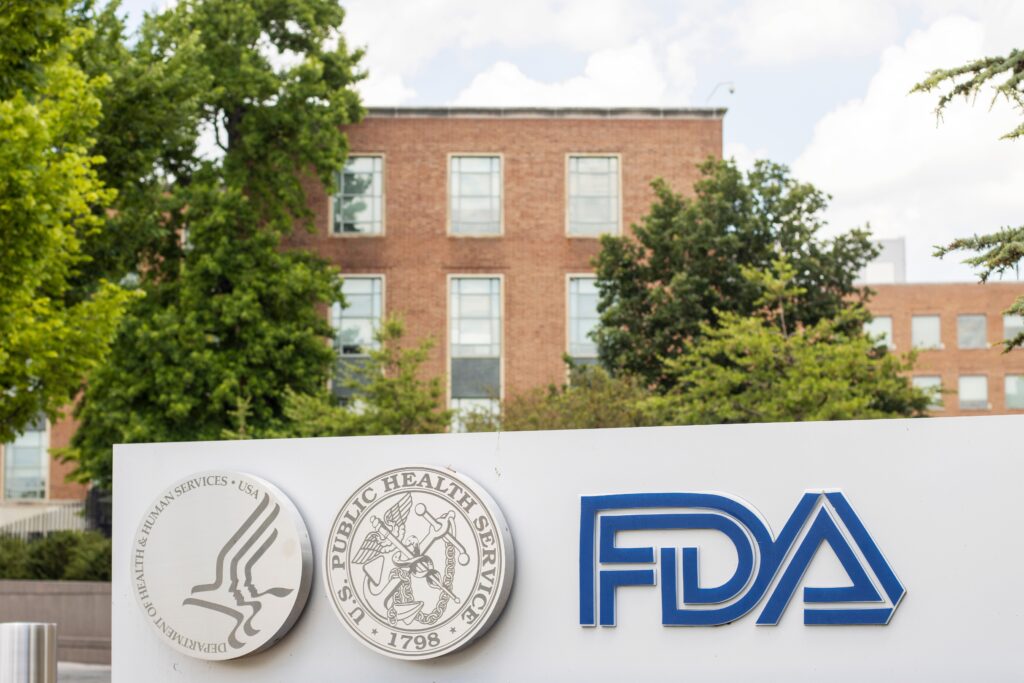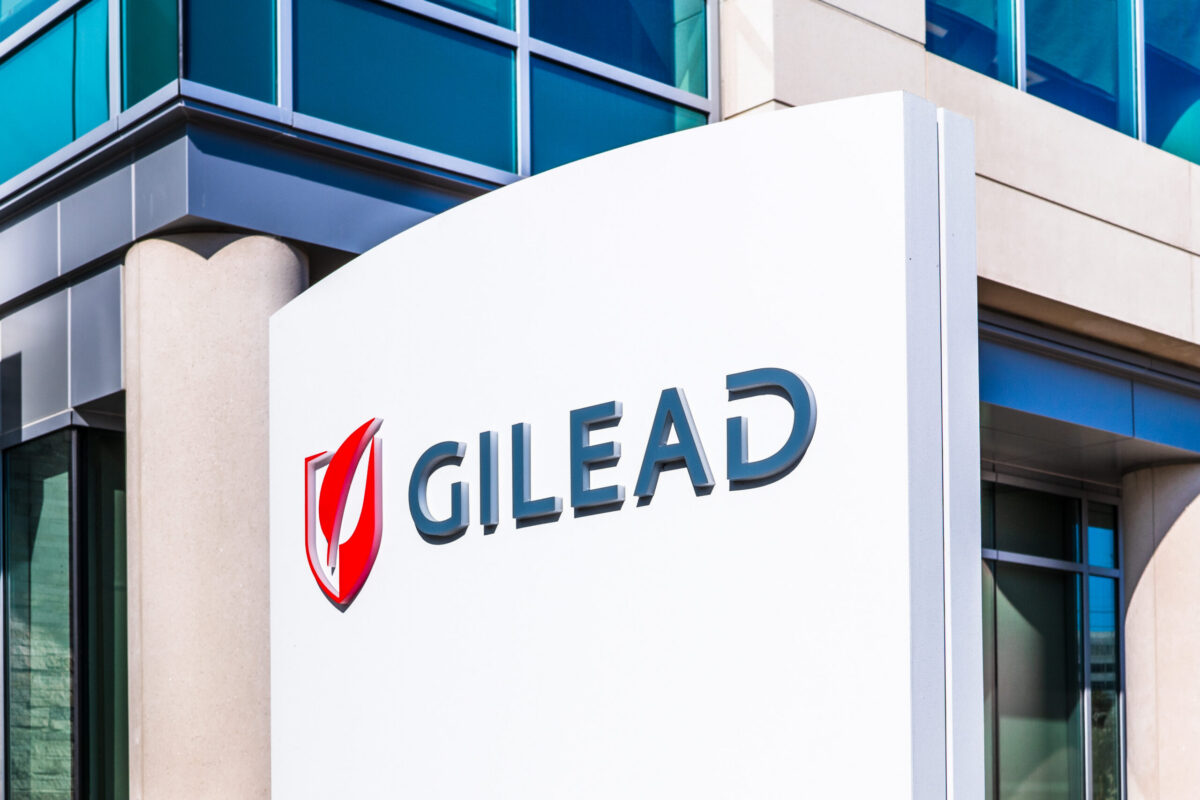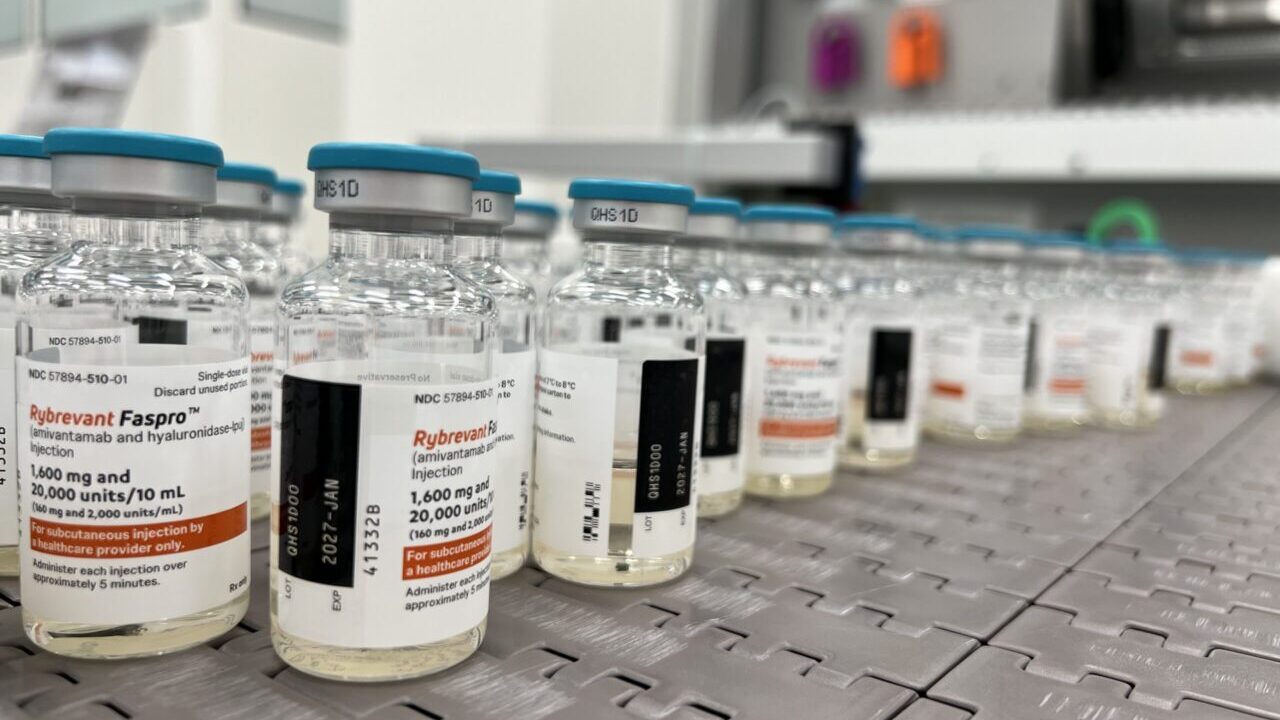The FDA has updated the labeling for glatiramer acetate, used for the treatment of multiple sclerosis (MS), to include a boxed warning about the risk of the allergic reaction anaphylaxis.
The drug is marketed by Teva Pharmaceuticals as Copaxone and Sandoz sells a generic version of it under the name Glatopa.
According to the FDA, cases of anaphylaxis — which can be life-threatening in severe cases and if not treated in a timely or effective manner — have been reported in patients treated with glatiramer acetate.
In its communication, the FDA said anaphylaxis can occur at any time while on treatment, including after the first dose or after doses administered months or even years after first taking the drug.
However, the agency said that symptoms appeared within one hour of injection in most patients who experienced anaphylaxis. In some cases, anaphylaxis resulted in hospitalization and death.
While the occurrences are rare, the severity of anaphylaxis necessitates immediate medical attention, as it can cause symptoms, such as difficulty breathing or shortness of breath; swelling of the face, lips, tongue or throat; severe drop in blood pressure; rapid or weak pulse; and hives or rash. These symptoms can rapidly progress to more serious ones, including severe rash or life-threatening shock.
Patients and healthcare providers are advised to be aware of these symptoms and to act promptly if anaphylaxis is suspected.
Related: Ocrevus Zunovo Subcutaneous Solution for MS Gains FDA Approval
To address the risk, the FDA said it is updating the prescribing information and patient medication guide for glatiramer acetate to include a new boxed warning.
A boxed warning, often referred to as a “black box warning,” is the FDA’s most stringent alert about potential serious or life-threatening risks associated with a medication.
Glatiramer acetate is a synthetic peptide-based medication approved for the treatment of relapsing forms of MS. It is thought to work by modulating the immune system to reduce the frequency of relapses in patients. According to Copaxone’s label though, its exact mechanism of action has not been fully elucidated.
Available in prefilled syringes for subcutaneous injection, glatiramer acetate is often considered a first-line treatment due to its non-immunosuppressive mechanism and relatively mild side effect profile compared to other disease-modifying therapies.
In its investigation leading to the boxed warning, the FDA identified 82 cases of anaphylaxis associated with glatiramer acetate reported worldwide between December 1996 and May 2024. This included 19 cases that occurred more than a year after starting the medication.
The 82 cases included reports submitted to the FDA and published in medical literature; however, “additional unreported cases are likely,” the agency said.
While anaphylaxis appears to be rare relative to the widespread use of the medication, these cases involved serious outcomes, with patients requiring emergency room visits or hospitalizations. Six deaths were reported.
Most of the 82 patients experienced anaphylaxis within one hour of administration.
However, even medications with a long history of use can reveal unexpected risks.
The FDA noted that early signs of anaphylaxis can resemble those of a common, temporary reaction known as an immediate post-injection reaction, which may occur shortly after receiving an injection.
While immediate post-injection reactions are frequent and typically mild, anaphylaxis is rare but more serious. Its symptoms tend to be more severe, can worsen over time and require prompt medical treatment.
The FDA advises that patients experiencing a reaction after receiving the medication should seek immediate medical attention if symptoms are more than mild, persist or worsen over time.
Apart from the current safety issues, Copaxone has been embroiled in recent antitrust controversies. In October, Teva agreed to a $450 million settlement after four years of fighting allegations of kickbacks related to copayments and price-fixing from the US government.
Also in October, across the Atlantic, the European Commission slapped the company with a €462.6 million ($503 million) fine for alleged “abusive conduct” aimed at delaying competition and extending Copaxone’s exclusivity. Teva stated it will appeal the ruling and fine, arguing that the decision was based on “extreme, untested and factually unsupported” legal theories. It says it is “well prepared financially to mount a defense.”
Amid the recent safety concerns surrounding glatiramer acetate, the FDA rejected Viatris and Mapi’s long-acting glatiramer acetate injection in March last year, though the companies did not disclose the reasons behind the decision.
If you want your company to be featured on Xtalks.com, please email [email protected].












Join or login to leave a comment
JOIN LOGIN